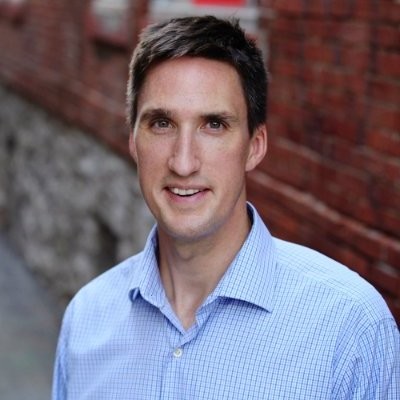 Turn the Page KC works with the Kansas City community to raise the reading proficiency of third graders. IFF sat down with Executive Director Mike English to learn more about how the organization is responding to COVID-19 and how the Paycheck Protection Program (PPP) may help them through this moment in history.
Turn the Page KC works with the Kansas City community to raise the reading proficiency of third graders. IFF sat down with Executive Director Mike English to learn more about how the organization is responding to COVID-19 and how the Paycheck Protection Program (PPP) may help them through this moment in history.
IFF: How did COVID-19 and the related shutdowns affect your organization?
English: We were certainly affected. Our organization focuses on getting kids reading proficiently by third grade. Much of our work is partnering with schools and churches to provide literacy support, summer programs, tutoring, and books. When COVID hit, the kids were no longer in school; they were at home. Our priority is on low-income kids, and we knew there would be inequities related to their ability to access distance learning—because not everyone has Internet access or an adequate device.
We shifted some priorities from our long-term work to more critical needs. One of the first things we did was raise money to make sure they had access to books. We distributed about 30,000 books to kids and families, mainly through coordination with food distribution sites.
On fundraising side, we had to cancel our big annual fundraiser and our other big reading event, and we also transitioned our regular stakeholder convenings from in-person to online. Fortunately, there were some local funders who set up COVID relief funds, so we raised money through those.
IFF: Why did you decide to pursue a PPP loan, and how do you think it will help your agency?
English: Honestly, when the initial legislation passed, it didn’t occur to us that we would be eligible as a nonprofit organization—so we didn’t apply in the first round of PPP funding. Then we got the IFF email, and we learned that we would be eligible, that the money could be used for payroll, and that it could be forgiven. The impact on our organization has been that we were able to actually increase our spending on critical needs for families and direct childcare providers and schools. We helped early childhood education centers to re-open by giving them money to spend on PPE. We spent about $50,000 on the books that we gave out. We would not have been able to do any of that without PPP because we would have had to use all of our funding on salaries. So PPP helped us not just to stay afloat, but to actually increase our programs during a time of need.
PPP helped us not just to stay afloat, but to actually increase our programs during a time of need.
IFF: What was your experience like in getting the PPP loan?
English: It was great. The initial step was to complete an online form, and then we were contacted by the lender. IFF had a person who walked us through it, and he was very helpful. We had heard it was difficult, but it was surprisingly easy for us. We were not an IFF client, but we have worked closely together on early childhood education centers here in Kansas City.
IFF: What’s one thing you’ve learned in this climate?
English: I’ve learned just how delicate our community is—when something like this hits, the repercussions are swift and devastating. There have been so many different situations where there is basically no good solution. Every decision has negative repercussions, so it’s important to have nonprofit organizations that can provide critical needs and be there to pick up the pieces for families.
I also learned that our school systems were not prepared to roll out distance learning on short notice. Our school districts tried their best to communicate with families and continue instruction virtually, but my sense is that we are facing a dramatic learning loss everywhere, and particularly in our communities that are less digitally connect. Hopefully virtual instruction is more successful in the Fall and we are much more prepared now after going through all this.
One silver lining is that going through that experience in the spring forced some parents to increase their capacity to support their children’s education. That helped build relationships between parents and teachers as co-educators, and hopefully that’s something that will continue.